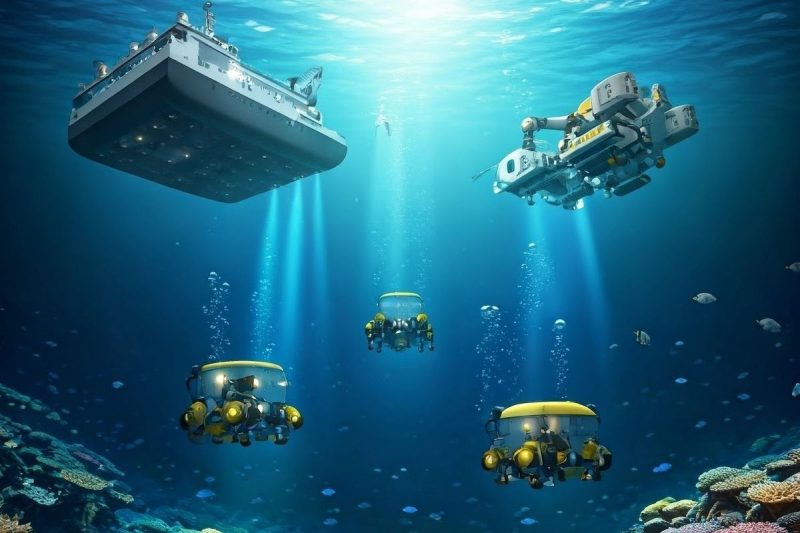
Norway Halts Deep-Sea Mining Amid Growing Environmental Worries
Norway Suspends Deep Sea Mining Plans as Environmental Concerns Rise
The beauty and biodiversity of the deep sea have long captivated the imagination of mankind. However, the allure of exploiting its resources has resulted in a clash between economic gain and environmental preservation. In recent years, the concept of deep sea mining has gained traction as a potential solution to meeting the growing global demand for metals and minerals. Yet, as countries consider venturing into this uncharted territory, the environmental implications have become a key point of contention.
Norway, known for its pristine natural landscapes and strong commitment to environmental conservation, recently found itself at a crossroads when it came to deep sea mining. The Norwegian government had been exploring the possibility of allowing mining companies to extract minerals from the seabed off its coast. With an estimated wealth of valuable resources such as copper, zinc, and cobalt lying beneath the waves, the economic benefits seemed promising. However, concerns about the potential environmental impact of such activities soon took center stage.
Environmental groups, scientists, and indigenous communities raised alarm about the potential disruption to deep-sea ecosystems that are crucial for marine life. The delicate balance that exists in these remote waters could be irreversibly harmed by mining operations, leading to the loss of unique habitats and rare species. The release of sediment, noise pollution, and disturbances caused by equipment could disrupt the intricate web of life that thrives at great depths.
In response to these mounting concerns, the Norwegian government made the bold decision to suspend its plans for deep sea mining. This move reflects a recognition of the need to prioritize environmental protection over economic gains in the face of uncertain consequences. By putting a pause on mining activities, Norway has demonstrated a commitment to responsible stewardship of its marine resources and a willingness to engage in a dialogue with stakeholders to find sustainable solutions.
The decision to suspend deep sea mining plans in Norway serves as a significant example for other countries grappling with similar dilemmas. It highlights the importance of taking a precautionary approach when considering activities that could have far-reaching impacts on the environment. By prioritizing the preservation of deep-sea ecosystems, nations can work towards ensuring the long-term health and sustainability of our oceans for future generations.
As the global demand for metals and minerals continues to grow, it is imperative that we find a balance between meeting economic needs and safeguarding the environment. The case of Norway underscores the complexities and challenges associated with deep sea mining and the importance of careful consideration of its potential consequences. By heeding the lessons learned from this decision, countries can chart a course towards a more sustainable and responsible approach to resource exploitation in the deep sea.
